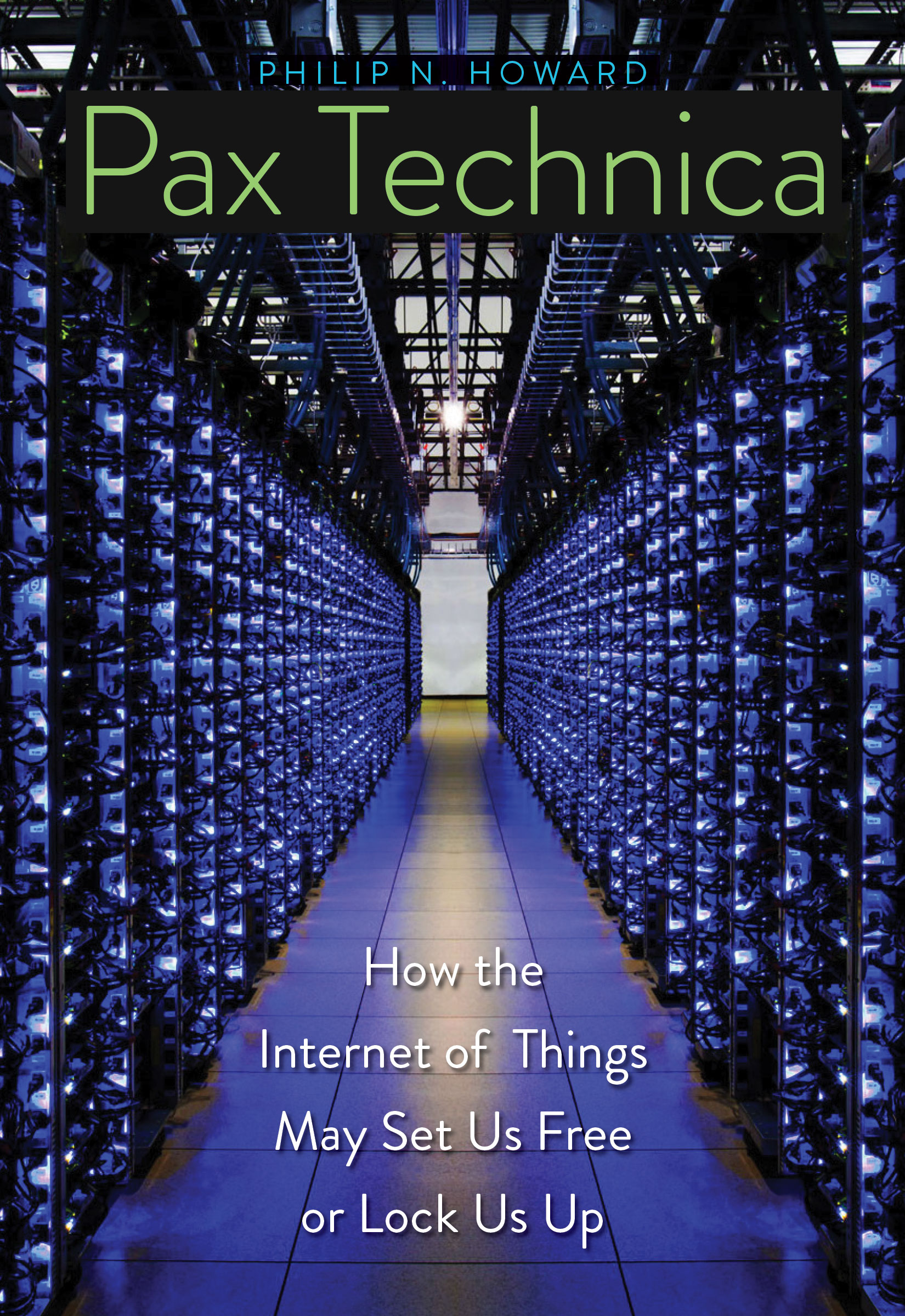What People Say

Pax Technica is a groundbreaking assessment of the next great stage of the digital revolution, the one that makes all previous stages look like child’s play. The ‘internet of things’ is upon us, and Howard provides an eye-opening account of its immense promise and perils.
Robert W. McChesneyBuilding on his previous research about digital technology and democratization, Philip Howard takes a sweeping and ambitious look at how government, political structures and international relations will be transformed by technological change. Optimistic that a Pax Technica will bring global stability, Howard calls for more transparency, standards for data sharing and reminds us of the need for an internet that is truly global. Thought provoking, opinionated, and upbeat, Howard’s book is an interesting addition to the debate about the effects that new technology should and could have on our society.
Anya SchiffrinTo understand the true significance of the Internet of Things, I only need to turn to Philip Howard’s new masterpiece: Bold, comprehensive, full of intriguing insights and eminently readable!
Viktor Mayer-SchönbergerIn Pax Technica, Philip Howard envisions a world in which the ubiquity of Internet connectivity and the proliferation of Internet-aware devices fundamentally change the ways governments and other power structures interact with people. Whether this new order comes to full fruition, Howard’s roadmap of the potential opportunities and consequences is extremely useful as we move into unchartered technical and political waters.
Jonathan ZittrainForget networking your toaster to your refrigerator—in Pax Technica, Howard brilliantly outlines the coming consequences of the Internet of Things, including altered norms of international governance. This is the most important work yet written on the subject, and the first to extend the logic of networked infrastructure to the global political stage.
Clay ShirkyConnected devices raise a variety of social, economic, and political concerns. In this timely book, Howard analyzes how sensors, geolocation devices, and wearable technologies will broaden and threaten people’s lives. It is a superb analysis of what he calls ‘pax technica’
Darrell West
Understanding geopolitics in the Internet age is no longer possible without an understanding of how power is wielded across global networks of digital devices. Phil Howard maps out the opportunities and challenges of this brave new world.
Rebecca MacKinnonAmbitious and provocative, Pax Technica addresses the implications of digital media, big data, and related phenomena for democracy and public life. Pundits, policymakers, and those curious about the changing landscape of media, politics, and global affairs should take note.
Seth LewisWeaving rich stories into an analytic framework, Howard’s crisply written book outlines a technologically-optimistic vision of the emerging public-private global order he dubs Pax Technica. Whether one accepts or rejects his arguments, the book is an important contribution to our struggle to understand the world that is coming upon us.
Yochai BenklerPax Technica is a bold and prophetic book. Even if you disagree with Philip Howard’s conclusions, you will want to engage with his arguments. He sees our world in a genuinely new way.
Anne-Marie SlaughterWe can’t say we haven’t been warned—or encouraged. Phil Howard makes a big argument about the fundamental shift in power that will occur once the Internet of Things takes hold and connected devices become central to our lives. He also provides a wise blueprint for making these changes work for the common good. Take heed.
Lee RainePax Technica is an essential guidebook for the often unsettling implications of Big Data and the Internet of Things. Howard crafts a persuasive plea for active civic engagement to help chart us towards a more equitable digital future.
Ron DeibertPax Technica is a brilliant work of responsible optimism about how big data, AI and the Internet of Things may improve the world. Philip Howard acknowledges the potential downsides of our data-drenched society, but makes a compelling case for why we may live better, and govern ourselves sensibly, in the era of Pax Technica. The book makes a substantial contribution to the debate over how we coexist with technology—and is as a thoughtful antidote to the digital doomsayers.
Kenneth CukierA riveting and highly readable portrait of how the explosive growth of the ‘internet of things’ will pervasively reshape political and social life—and why democratic publics must be prepared. Essential for anyone who wants to understand the world that is emerging in the coming hyper version of the digital age.
Larry Diamond
